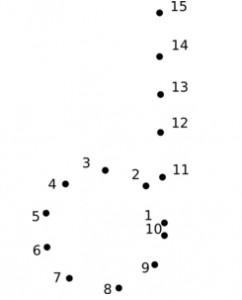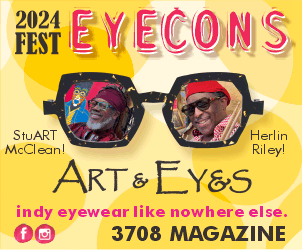One of the hallmarks of a well-functioning operation is how the pieces of the operation function together, and information must be disseminated in a way such that so that the “whole” of the organization can achieve the goal: connecting the dots, so to speak.
One of the things I’ve found frustrating in business and in the non-profits with whom I’ve worked is lack of communication. Sometimes an operation gets so large and so spread-out that the right hand doesn’t know what the left hand is doing, which leads to a breakdown in achieving the overall goals of the organization. Coordination of efforts to achieve a goal becomes difficult, and a lot of the time, goes away almost entirely.
The moving parts consist of human beings, of course, and all humans have their own personal needs and agendas, and finding the means to connect those human dots is probably one of the most difficult things any manager has to do (I’m starting to sound like a business textbook here, but bear with me).
 What’s been very frustrating for me personally over almost 30 years of advocating for music is that the right hand and left hand are still going in opposite directions; the dots are definitely not being connected. I suppose OffBeat has helped a bit in communications (at least I hope that it has; there’s a lot more information being put out there, thanks to social media and more interest from the “mainstream” media. But media just reports on what’s going on. It doesn’t coordinate the process.
What’s been very frustrating for me personally over almost 30 years of advocating for music is that the right hand and left hand are still going in opposite directions; the dots are definitely not being connected. I suppose OffBeat has helped a bit in communications (at least I hope that it has; there’s a lot more information being put out there, thanks to social media and more interest from the “mainstream” media. But media just reports on what’s going on. It doesn’t coordinate the process.
Music is still considered as peripheral to the culture and economy of the city. I hate to say that, but it’s true.
I’d really like to see a strategic plan developed for the city vis a vis music. That, of course, would mean that the city (including the mayor and city council) and all of its quasi-agencies: the New Orleans Convention & Visitors Bureau, Tourism Marketing Corporation, economic development factions, the Chamber of Commerce would all buy into this.
If we can first decide the significance of music for us in terms of place in economic development and visitor attraction, determine what we want to happen over the next 10 years or so, then we can work to strategically develop towards that goal. That’s never, ever been done before in New Orleans.
This could include coordination of festivals and promotion of same, feasibility study and development of a working model for a music museum (I read the Convention Center’s plan to develop a huge parcel of land not into an expanded convention center, but into a hotel and “entertainment” district (what is that, pray tell?). It could also include the development of projects that would benefit New Orleans and Louisiana music, which would mean a non-profit that could actively pursue grants that would benefit the music community and promote our music as a whole.
The article that precipitated today’s blog was one that touted the development of a “Zydeco Crossroads” mega-project in—not southwestern Louisiana—but in, of all places, Philadelphia. Philly? Really? The 15-month-long project, which will include a website, concerts, special events, radio exposure on David Dye’s World Café, and a documentary by Robert Mugge to be premiered in 2015, is being funded by the Pew Center for Arts & Heritage, and is a project of WXPN.
I’m thrilled that zydeco is getting such great exposure to a wide audience. It’s just too damned bad that someone couldn’t “coordinate” a project like this here that would accrue to the actual place where the music was born—and lives on. But projects like this have to go where the money is—and that’s in Philly.
It also happens that longtime zydeco advocates Terrance and Cynthia Simien are also working with filmmaker Michael Murphy on another zydeco documentary. More on both projects as they progress.
The Louisiana Cajun and Zydeco Festival was hugely successful this year after its move to Armstrong Park. Where do you think is the best place for small music festivals in the city? Take OffBeat’s Weekly Poll.




